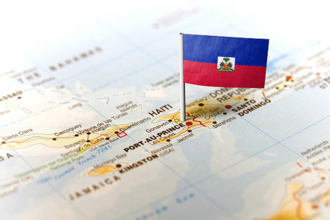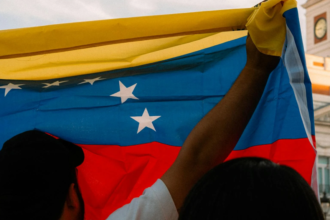In a harrowing escalation of repression, Venezuelan security forces have launched a sweeping crackdown on opposition activists, sparking fears of a new wave of brutal suppression under President Nicolás Maduro’s embattled regime. The chilling events unfolded in the wake of Venezuela’s fiercely disputed presidential election, which has ignited mass anti-government protests across the nation.
Nepal Protests: Who Will Lead the Nation After Days of Chaos?
One of the most shocking episodes of this crackdown was captured live on Instagram, as María Oropeza, a campaign coordinator for the opposition coalition Vente Venezuela, recorded her own detention in real-time. The video begins with the thunderous sound of military officers hammering at her door, and Oropeza’s voice trembles as she pleads with her followers, insisting she is not a criminal. Moments later, the screen fades to black as officials from Venezuela’s military counterintelligence agency forcibly enter her home, silencing her cries.
Oropeza’s detention is just one of many in a growing list of targeted arrests by Venezuelan authorities. Since the election results were announced in the early hours of July 29, the regime has tightened its grip, with prominent opposition figures Freddy Superlano and Roland Carreño, as well as Ricardo Estévez, a technical adviser for Vente Venezuela, all being seized in a sweeping campaign of repression.
Human rights organizations are sounding the alarm, warning that the lives of these detainees are at grave risk. Amnesty International has reported a disturbing pattern of arrests, with many individuals taken into custody without being informed of the charges against them. The organization believes these arbitrary detentions are part of a broader strategy to crush dissent and instill fear among the Venezuelan populace.
In a brazen show of power, the Venezuelan government has boasted of detaining more than 2,000 people since the election, accusing many of “terrorism” and other serious crimes. President Maduro has accused the opposition of orchestrating a “coup” and has announced plans to build two new maximum-security prisons to house those he labels “criminal fascists.”
But the reality on the ground tells a different story. Clara del Campo, Amnesty International’s senior campaigner for the Americas, described the mass detentions as part of a “two-pronged trend”—indiscriminate arrests of protesters on the streets, coupled with targeted assaults on human rights defenders and opposition members. The goal? To crush any form of political participation and silence those who dare to stand up for justice.
The atmosphere of fear is palpable in Venezuela, where even ordinary citizens are being targeted. Foro Penal, a Venezuelan human rights NGO, has documented instances of people being arbitrarily stopped and searched by security forces, with their phones scrutinized for any evidence of opposition to the government. Those who are detained in this manner are often denied access to independent legal counsel, leaving them isolated and vulnerable.
President Maduro’s strategy of repression, dubbed “Operation Knock Knock,” involves door-to-door raids to round up anyone with suspected ties to the opposition or the protests. This terrifying campaign has led to a wave of disappearances and arbitrary arrests, leaving families desperately searching for their loved ones.
Among the victims of this brutal crackdown is Edni López, a university professor and humanitarian worker. López was detained at Caracas International Airport on August 4 while attempting to board a flight to Colombia. Her passport, which was valid, was inexplicably deemed “expired” by migration authorities. After two agonizing days, her family finally learned she was being held at a detention center and would face court in La Guaira, though no formal charges have been announced.
López’s case is far from unique. Amnesty International reports that at least six people with disabilities and more than 100 children aged between 13 and 17 have been detained since the election. The detentions are part of a broader pattern of repression aimed at stifling any form of dissent.
For many Venezuelans, the situation is becoming increasingly dire. Human rights defenders and opposition members are being systematically targeted, with their passports revoked and their movements restricted. Even high-profile activists like Yendri Omar Velásquez, a prominent LGBT rights advocate, have been caught in the regime’s net, detained at the airport while trying to leave Venezuela to report human rights violations to the United Nations.
The psychological toll of this crackdown is immense. Friends and families of the detained live in constant fear of repercussions, with some too terrified to even speak out about their loved ones’ plight. This culture of fear is exactly what the Maduro regime seeks to cultivate—a society so paralyzed by terror that dissent becomes unthinkable.
As Venezuela plunges deeper into darkness, the international community looks on with growing concern. The relentless crackdown on activists, opposition members, and ordinary citizens is a stark reminder of the lengths to which President Maduro will go to maintain his grip on power. The world is watching, but for those trapped in Venezuela’s nightmare, the question remains: who will speak for them?








